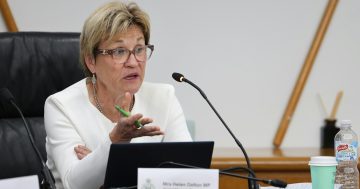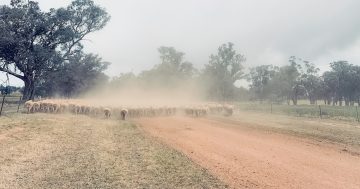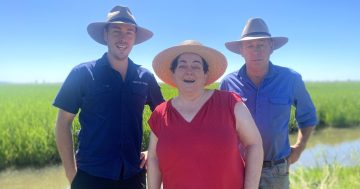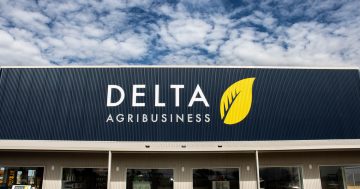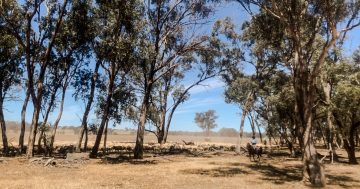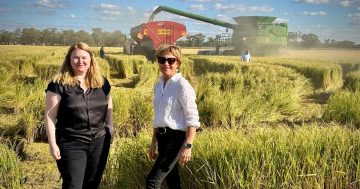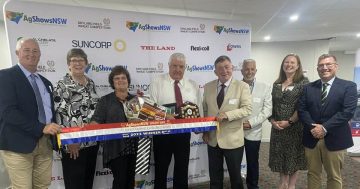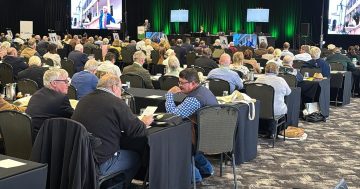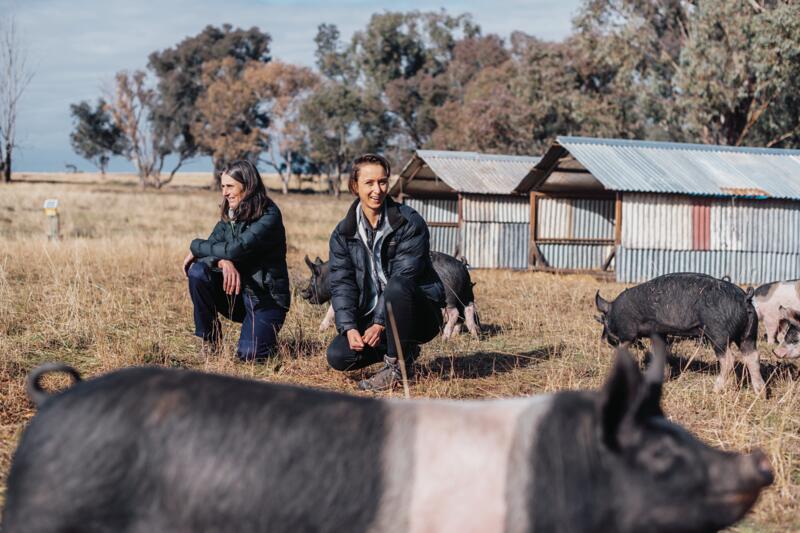
New NSW Farmers CEO Annabel Johnson (right) with her mother Claire at the family’s Murringo farm, which has also diversified into free range pork production. Image: NSW Farmers.
The kid who grew up near the Hilltops village of Murringo claiming she always wanted to be a farmer is heading back home to the farm this Christmas as head of the state’s leading agri-political organisation.
NSW Farmers President Xavier Martin this week announced Annabel Johnson had been appointed as the new CEO of the 6000-member organisation.
Speaking to Region this week, Annabel unhesitatingly leant into her lifelong connection to agriculture, her first steps taken amid orchards and pasture-raised poultry on her parents’ 24-acre permaculture farm near Wombat village, south of Young.
“My mother’s family came from up around Coonamble – so school holidays were spent on farms,” she said. “Most people would see it as work, but I loved it, you know – mustering sheep, getting in cattle, being in the yards, you know, that was sort of what I absolutely loved.”
Then, as a young teen, Annabel and her family moved to a cattle and sheep property bordering a national park at the foothills of the Murringo Mountains, northeast of Young.
“Windermere” had been a Johnson family property since the 1920s and Annabel’s parents, Sam and Claire, took a more holistic approach to farming with the introduction of regenerative farming and later diversified into on-farm production under the label Boxgum Grazing.
Facing a second year of drought as the 2001 to 2009 millennium drought took hold, the experience would eventually pivot Annabel toward another determination.
“That drought was when the importance of agriculture really hit home to me – obviously I was a bit older then so I saw the impact it had on my family and the community of Young not just through the day-to-day jobs of keeping animals well fed and watered, but the impact it had on the main street,” she explained. “Drought doesn’t just impact farmers; it ripples right throughout the regional community.”
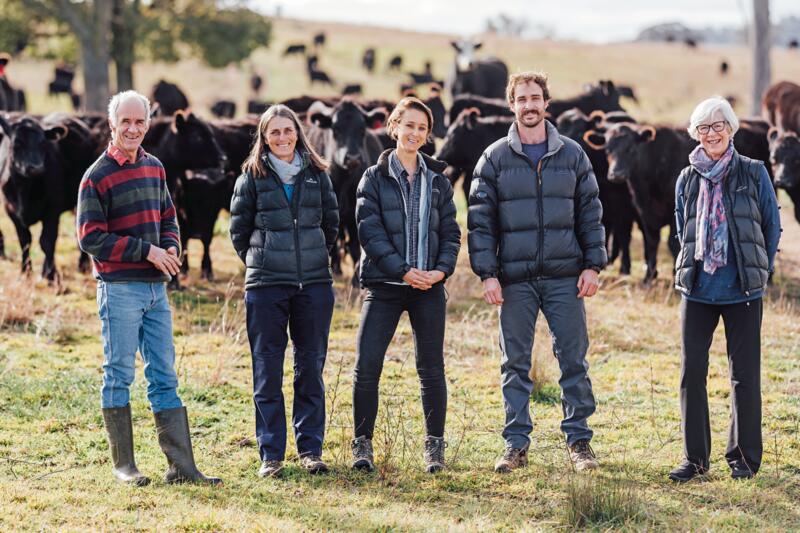
Annabel (centre) with parents Sam and Claire, brother Sid and their grandmother, the late Marg Johnson. Image: NSW Farmers.
Eventually she downed tools and took herself to university to study the art of persuasion – law – and politics – in the heart of the nation’s capital at the Australian National University.
“I knew I wanted a career in agriculture,” she said, “and I chose Canberra because to effect change you need to be able to influence politicians and those that sit within the department and there’s a real disconnect between those people and their understanding about the needs of agriculture.”
Carving out a path working for farmers in the advocacy space led Annabel to the Cattle Council of Australia, the Australian Lot Feeders Association and finally to NSW Farmers in Sydney where she worked as a policy director, then Head of Policy and Advocacy before taking on the role of interim CEO in September.
“What I love about NSW Farmers is when I go to work each morning I don’t go to work for a single business, I go to work for the thousands of farming businesses across the state,” she said, “and my sole focus is what can I do in that day, that’s going to make farming businesses stronger.”
What Annabel brings to the table is a life lived among challenges of drought, bushfires, floods and mouse plague and a staunch voice in the fight for farmers.
“Now we’re dealing with high inflation, high interest rates, low commodity prices, and again, drying conditions,” she said.
Land use conflict and fair market pricing are high on Annabel’s hit list, as is biosecurity.
“If we have an incursion, it can wipe billions of dollars off the Australian agricultural and broader economy,” she said, “so we need to make sure the systems we have in place are robust so we keep these pests and diseases out.
“And if we’re not going to make sure we’ve got productive farming land to grow food and fibre, we’ve got our priorities wrong,” she said, “because at the end of the day, farmers grow food and fibre for us all to enjoy and there isn’t a more important industry than farming because each and every day everyone needs to be able to eat to sustain life.”
With that common goal, Annabel’s intent on collaborating with many national and state farmer organisations to bring government focus and policy back to farming while also narrowing the chasm between urban and rural communities.
“As more people are growing up in city areas we need to think about what we do to impact that next generation coming through so they understand not only the importance of farming, but that they understand that milk or tomatoes are agricultural products.”
Advocacy on critical government policies is what she hopes will define the future of agriculture for the farmers of the future.
“A critical part of it is working in with politicians and bureaucrats so they actually understand that and don’t put in place policies that make farming more difficult,” she said.
Annabel’s nose is pointed west for Christmas with the family.
“There’s nothing quite like being back on that farm. Christmas is just a lovely time with family and in the community, so I’m certainly looking forward to heading home,” she said.







